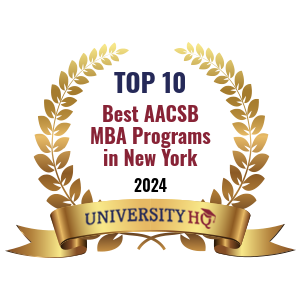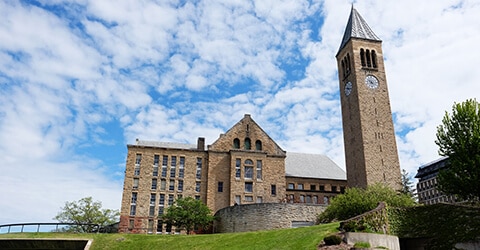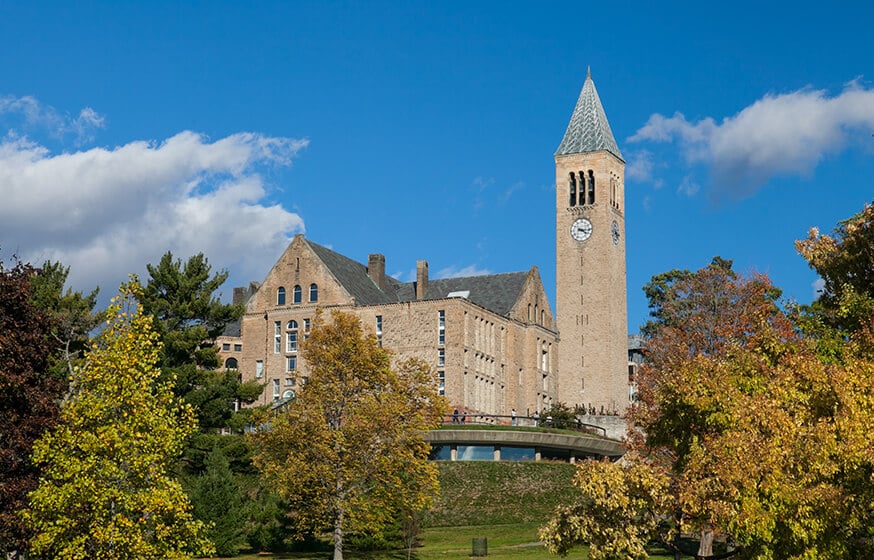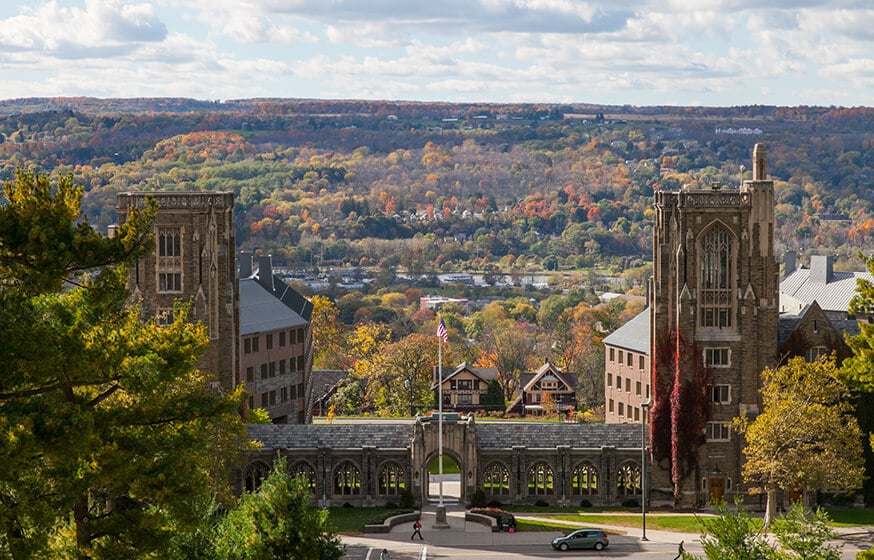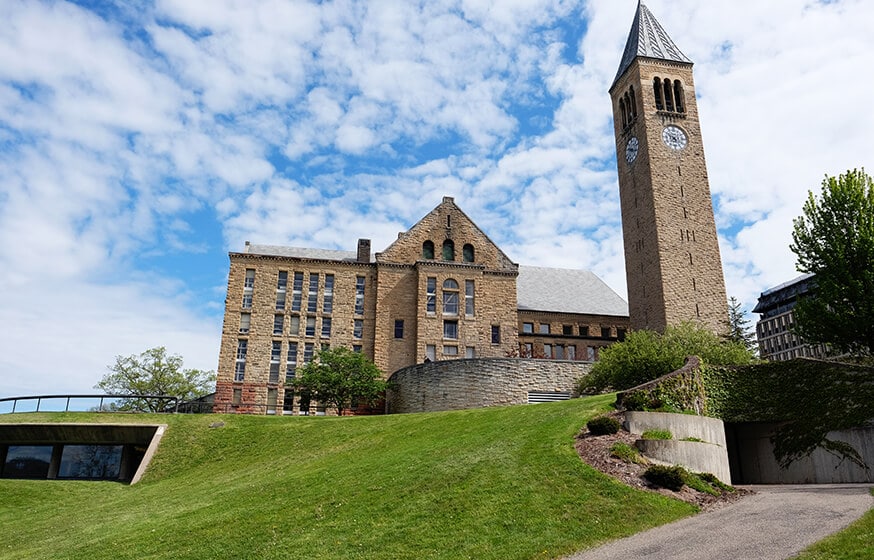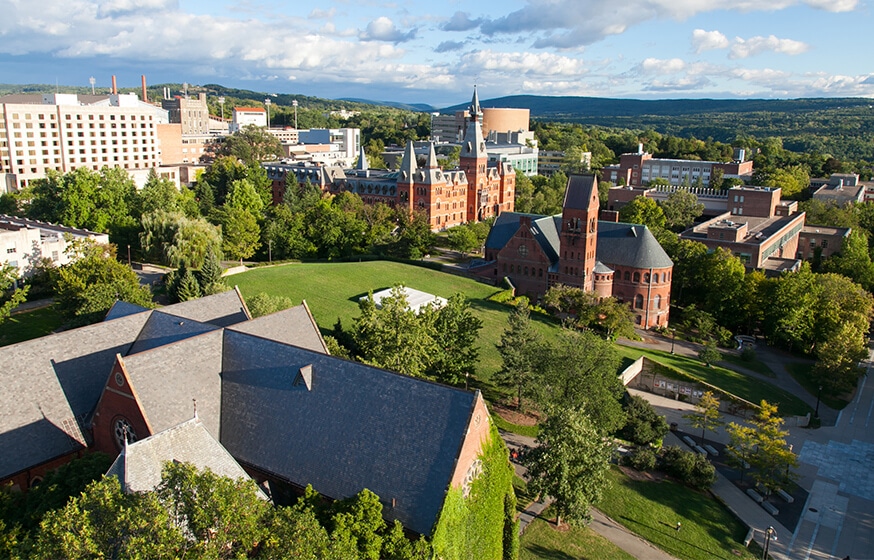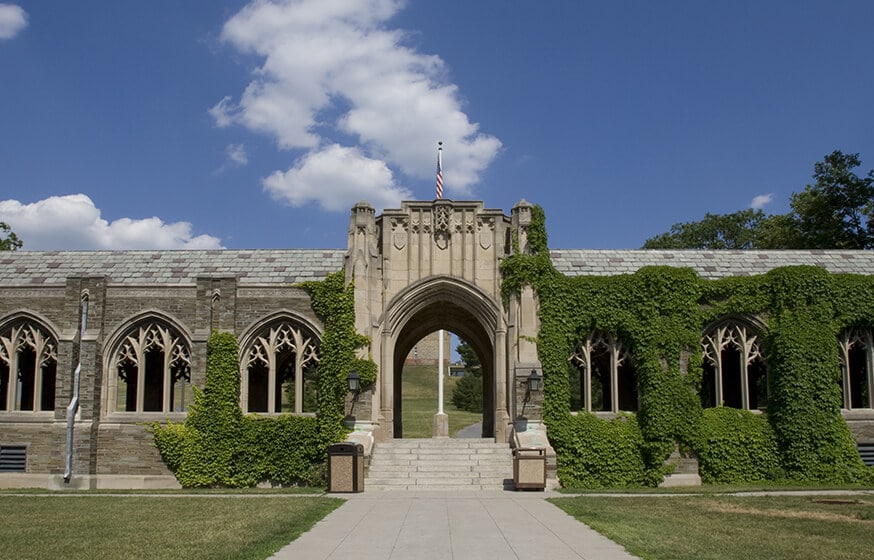Get Matched With Online Colleges
Cornell is a private, not-for-profit university in Ithaca, New York. Ithaca is a small city, allowing students to easily get familiar with its attractions. Students can also venture out beyond the city and learn about the surrounding area. The physical setting is tree-filled, with natural waterfalls to enjoy. The student to faculty ratio is 9 to 1, allowing professors and students to easily meet with each other as needed. Cornell University was founded in 1865, so it has been educating students for well over one hundred years. Campus housing is available for students who need a place to live while they are in school; shouldering an additional expense, such as rent and/or utilities may be beyond their budget.
Search All Programs
Overview of Cornell University (CU)
High school graduates who passed advanced placement exams are also able to have AP credits accepted for credits at Cornell. This helps them to use those credits for their required credit load in college. If students cannot move to Ithaca to take classes, online education is available for both undergraduate and graduate students.
Cornell University is well-known for its research activities; it’s no surprise that its Carnegie classification among doctoral universities is noted as having very high research activity.
General Information
| School Type | Private not-for-profit |
|---|---|
| Campus Setting | City: Small |
| Campus Housing | Yes |
| Student Faculty Ratio | 9:1 |
| Graduation Rate | 95% |
| Year Founded | 1865 |
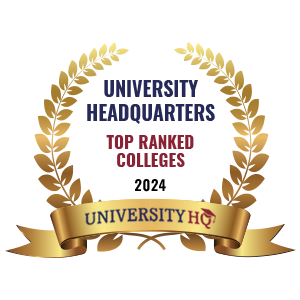
Student Enrollment
Total Students23,600
15,182
8,418
Undergraduate Student
Male 6,984
Female 8,198
Graduate Student
Male 3,872
Female 4,546
Explore Map
Top Rankings For Cornell University
CU Acceptance Rate and Admissions
APPLICATION51,324
ACCEPTANCE5,646
Acceptance Rate11%
Enrollment 3,387
| Admissions | |
|---|---|
| Application Fee | $80 |
| High School GPA | Considered But Not Required |
| High School Rank | Considered But Not Required |
| High School Transcripts | Recommended |
| College Prep Courses | Considered But Not Required |
| Recommendations | Required |
| SAT/ACT | Required |
| TOEFL (Test of English as a Foreign Language) | Required |
| Application Deadline | November 1 |
| Common Application Accepted | Yes |
CU Tuition Cost & Financial Aid
The cost or average net price of attending Cornell for students and their families is $28,890. This is the amount of tuition, fees, and books remaining once financial aid has paid for the bulk of the cost of the student’s education. The net price per student is based on their parents’ income. The less the family earns, the less they must pay to the university. Thus:
- Families that earn up to $30,000 pay $6,048
- Families with an income of $30,001 to $48,000 pay $6,918
- Families with an income of $48,001 to $75,000 pay $13,653
- Families with an income of $75,001 to $110,000 pay $22,588
- Families with an income of $110,001+ pay $47,090
60% of beginning students receive financial aid; the average amount is $2,022. Grants and scholarships make up 49% of the aid provided, at an average of $41,405 and institutional grants and scholarships make up 46% of the aid granted, at an average amount of $40,638.
| Average net price | 2017-2018 |
|---|---|
| Net Price | $28,890 |
| Average Total Aid | $41,405 |
| Students Receiving Financial Aid | 60% |
| Room & Board | $15,246 |
Sticker Price
- Tuition In-State - $57,222
- Tuition Out-of-State - $57,222
- Books and Supplies - $970
- Room & Board - $15,246
- Other - $2,820
Academics
The retention rate at Cornell University is 97%. The university measures the percentage at which first-year students return for their second year of instruction, which helps students gauge how well previous students graded the instruction they received.
The four-year graduation rate is 88%; the six-year graduation rate is 95%. While four years has long been the “normal” graduation rate, it has more recently been extended to six years as students take longer to complete their degrees.
The low student-to-faculty ratio may have some bearing on the high rates of graduation; when students receive more attention from a professor, they may feel more valued by the school and their professors. The total student population is around 23,600; the student body is composed of 15,000+ undergraduates and 8,400+ graduate students.
There are no evening classes at Cornell. However, students who aren’t able to attend daytime classes can opt for distance learning (online-only classes). This option is good for students who are working or who have families.
The most popular degree programs include agriculture majors, business majors, engineering majors except aerospace engineering, biological and biomedical sciences, and several social science majors.
Cornell University holds an institutional accreditation and several programmatic accreditations.
Retention
Rate
4 year
Graduation
Rate
6 year
Graduation
Rate
Student Population Total
Student Population 23,600
15,182
8,418
Most Popular Programs & Majors
(# of Diplomas Awarded by Subject)
| All Engineering Majors | 581 Total Graduates / 15% |
|---|---|
| Mechanical Engineering | 138 Graduates |
| Electrical and Electronics Engineering | 86 Graduates |
| Operations Research | 77 Graduates |
| Chemical Engineering | 71 Graduates |
| Agricultural Engineering | 50 Graduates |
| All Business Majors | 573 Total Graduates / 15% |
| Hotel/Motel Administration/Management | 292 Graduates |
| Labor and Industrial Relations | 281 Graduates |
| All Biological & Biomedical Majors | 524 Total Graduates / 14% |
| Biology/Biological Sciences, General | 272 Graduates |
| Biological and Biomedical Sciences, Other | 208 Graduates |
| Biometry/Biometrics | 35 Graduates |
| Entomology | 9 Graduates |
| All Computer Information Science Majors | 464 Total Graduates / 12% |
| Computer Science | 331 Graduates |
| Information Technology | 105 Graduates |
| Computer and Information Sciences, General | 28 Graduates |
| Agriculture, Agriculture Operations & Related Sciences | 439 Total Graduates / 12% |
| Agricultural Economics | 189 Graduates |
| Animal Sciences, General | 94 Graduates |
| Agriculture, General | 76 Graduates |
| Food Science | 33 Graduates |
| Plant Sciences, General | 29 Graduates |
| All Social Science Majors | 303 Total Graduates / 8% |
| Econometrics and Quantitative Economics | 162 Graduates |
| Political Science and Government, General | 84 Graduates |
| Sociology | 42 Graduates |
| Anthropology | 7 Graduates |
| Economics, General | 4 Graduates |
| All Other Diplomas | 24% |
Outcome & Salary
Graduates of Cornell University can anticipate earning a good salary when they begin to work. The average salary is $84,000. Their early career salary is $70,100 and their mid-career salary is closer to $128,200. This gives students a good return on investment or ROI. The 10-year projected ROI is $724,440; their 20-year projected ROI is $2,006,440. The 10-year salary earning potential is $840,000 and 20-year salary earning potential is $2,122,000.
High school graduates usually only expect to earn an annual salary of $38,792. Their 10-year projected income is $370,600 and the 20-year projected income is $775,840.
| Graduates Salary | |
|---|---|
| College Grads Early Career Salary | $70,100 |
| College Grads Average Salary | $84,000 |
| College Grads Mid Career Salary | $128,200 |
| Return on Investment (ROI) | |
|---|---|
| 10 Year Salary Earnings Potential | $840,000 |
| 20 Year Salary Earnings Potential | $2,122,000 |
| Cost of Education (Net Price) 4 Year | $115,560 |
| 10 Year Projected ROI | $724,440 |
| 20 Year Projected ROI | $2,006,440 |
| No College Education Salary Comparison | |
|---|---|
| National Average Salary | $38,792 |
| 10 Year Projected Income | $387,920 |
| 20 Year Projected Income | $775,840 |
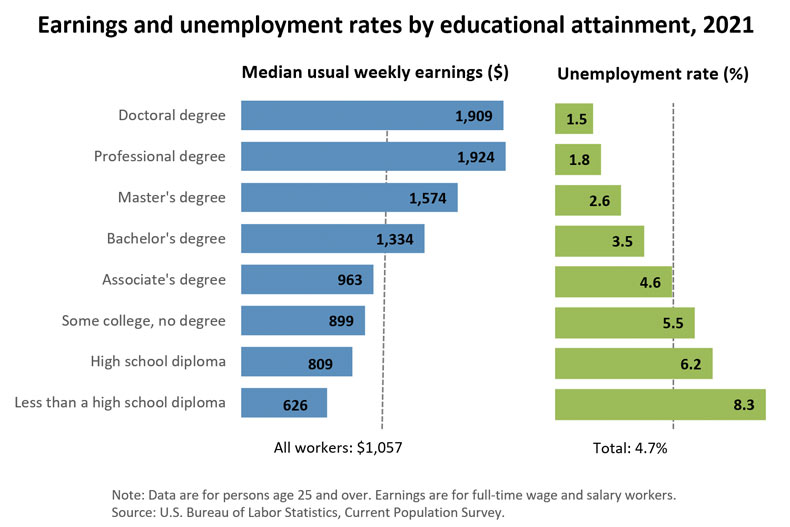
Related Top College Resources




